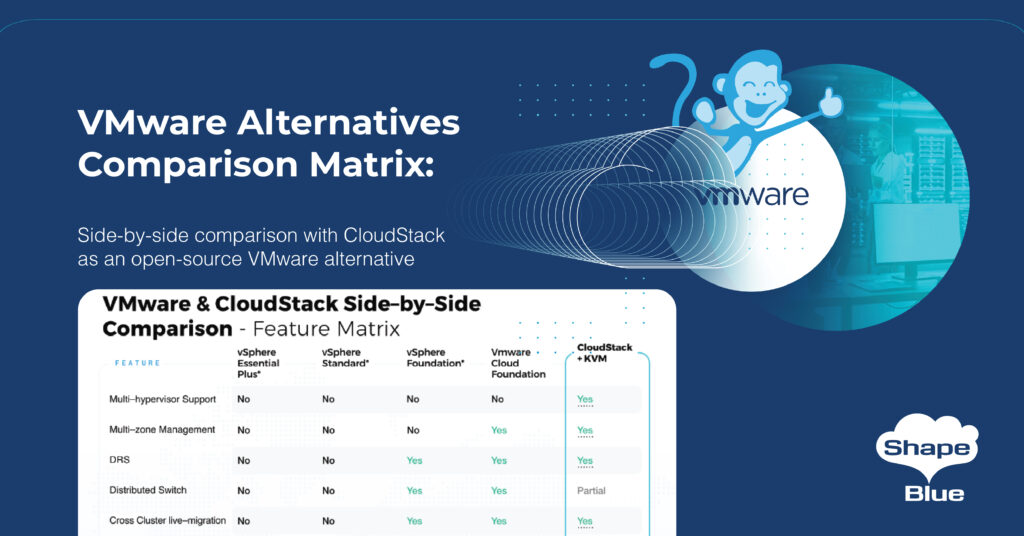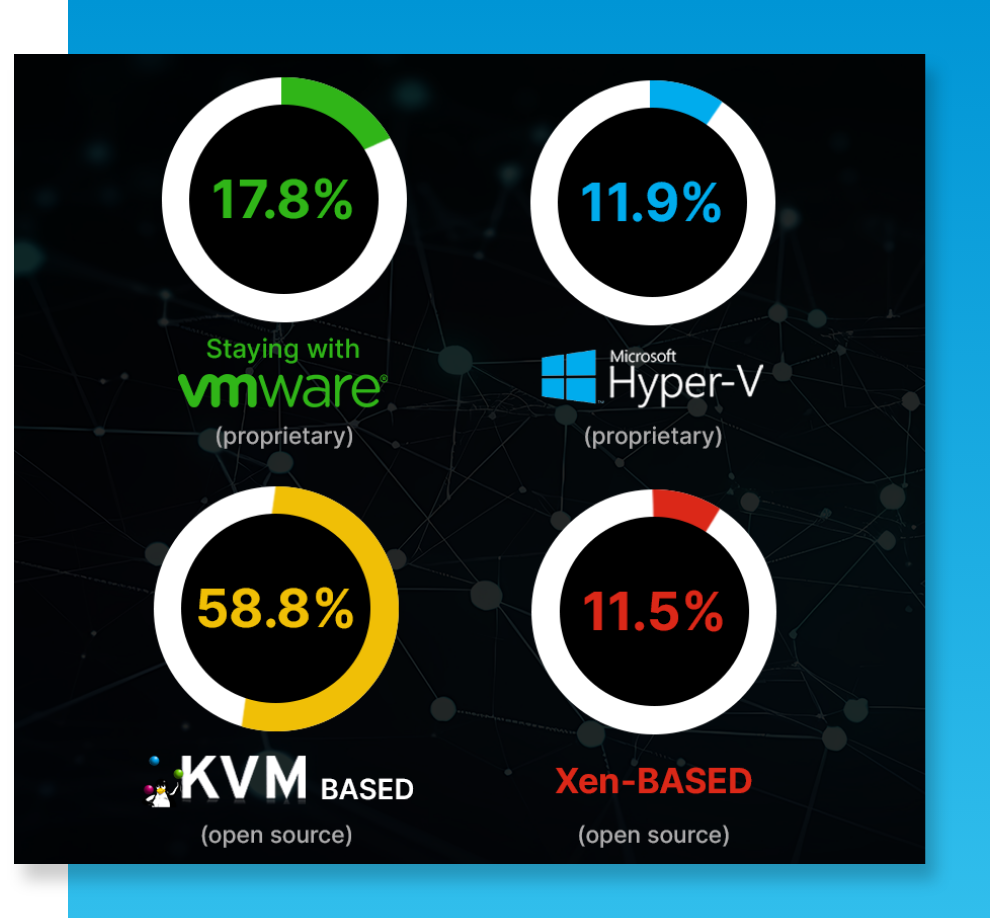Are you finding yourself at a crossroads, contemplating a future beyond VMware? The landscape of virtualization is shifting, and the choices before you have never been more diverse or, potentially, more advantageous.
The virtualization world is in a state of flux, particularly for those already invested in VMware or considering a migration away from it. The recent shifts in the industry, marked by acquisitions and changing pricing models, have spurred a reevaluation of existing infrastructures. This has prompted organizations to seek out viable alternatives that can offer similar functionality, and potentially, better value and strategic alignment with evolving IT goals. For Red Hat customers, or those contemplating a switch from VMware, the availability of tools for migrating virtual machines is a key consideration. The question of whether to modernize applications through containerization is a critical factor, influencing the choice of virtualization solutions.
In the quest for suitable alternatives, several factors come into play. The specifics of each organization, its needs, goals, and budget dictate the most appropriate path forward. It's important to understand that this is not a one-size-fits-all scenario. Some solutions may be excellent fits for enterprise-level operations, whereas others excel in personal use cases. The following detailed examination of various virtualization platforms will help guide you in this process.
Many organizations are exploring potential VMware alternatives for their private cloud solutions. It is important to understand what each offering brings to the table in terms of features, pricing, and user experience. To level set, we arent referring to desktop virtualization solutions like VMware Workstation with alternatives like VirtualBox, but rather enterprise solutions.
Below, we dissect several virtualization platforms, providing a comparative analysis of their advantages and disadvantages. The goal is to offer you an informed perspective on which alternative best suits your unique requirements. Remember, the best alternative is the one that aligns perfectly with your needs.
Considering the options available, its crucial to think about the overall strategy. Are you looking to simply replicate existing functionality, or are you open to modernizing your approach? Are you aiming for integration with cloud services, or do you want to maintain an on-premise environment? These are fundamental questions to be answered before any selection is made.
- Ella Nova Free Porn Videos Latest Updates Watch Now
- Wasmo Somali Telegram 2025 A Guide To Channels Trends
One of the most critical factors is scalability. Your chosen solution needs to be fully scalable to ensure that you can deploy and manage multiple virtual machines as your needs evolve. The chosen alternative solution also needs to maintain a steady, secure, and stable level of performance at all times.
A VMware alternative refers to any software or platform that provides virtualization services like those offered by VMware but comes from a different provider. These alternatives are designed to create, manage, and operate virtual machines (VMs) on various hardware platforms, often offering unique features or pricing structures.
It is also worth noting that VMware only supports VMware workloads in the data center. The options are many, and the choices made will have lasting implications for your IT infrastructure.
Let's delve into the alternatives.
Heres a look at some popular VMware alternatives:
1. Red Hat OpenShift:
Red Hat OpenShift is a comprehensive container platform built on Kubernetes, providing a robust environment for modernizing applications and managing containerized workloads. For customers considering a switch, the platform's capabilities in migrating virtual machines, coupled with its focus on containerization, make it a strong contender. OpenShift offers native integration and support for Windows workloads and is an excellent choice if you aim for Azure-integrated services and management.
2. Microsoft Azure Virtual Machines:
For those seeking Azure-integrated services and management, Azure Virtual Machines offers a compelling alternative. If your goal is more Azure-integrated services and management, Azure Local is probably the best alternative. Azure Virtual Machines offers similar functions to VMware virtualization products. It is a powerful option that helps users create VMs. It is designed to create, manage, and operate virtual machines (VMs) on various hardware platforms.
3. VirtualBox:
VirtualBox is a versatile virtualization solution that's well-suited for both personal and enterprise use. As a type 1 hypervisor, users can create and manage VMs on a variety of operating systems. VirtualBox offers a user-friendly interface and provides a great way to start experimenting with virtualization or run multiple operating systems on a single machine.
4. StarWind:
StarWind offers products designed for VMware alternatives and VMware migration. Starwind offers products for vmware alternatives and vmware migration. It offers virtualization solutions that can be used to replace VMware products, supporting the creation, management, and operation of VMs.
5. Other platforms:
There are several other platforms that offer virtualization solutions, each with unique features and advantages, designed to create, manage, and operate virtual machines (VMs) on various hardware platforms, often offering unique features or pricing structures.
In the end, the perfect VMware alternative needs to meet your specific demands.
When making your final decision, remember the following: Always choose the one that offers excellent scalability and flexibility to meet and tweak the needs on the go. Your chosen alternative solution needs to maintain a steady, secure, and stable level of performance at all times.
The market is evolving, and what was true yesterday may not be so tomorrow. Learn how to choose the best solution for your needs based on cost, scalability, support, hardware compatibility, and other factors. The decisions you make will have a lasting effect on your company.
Its crucial to remember that, in short, choosing a VMware alternative depends not only on your organizations size but also on its specific needs, goals, and budget. Your requirements will dictate whats best.
Whether the solutions are really suitable as an alternative depends heavily on individual requirements. Compare the features, benefits, and drawbacks of 11 popular platforms that offer virtualization solutions similar to VMware. Learn how to choose the best alternative for your organization based on cost, scalability, security, and more.
Consider the questions raised by industry changes and adapt accordingly. Whether VMware is a must for your organization or one of its alternatives is more suitable depends on your needs.
- Tinder Couples Tiktok Drama Proposal Latest Updates
- Explore Somali Telegram Channels Find Wasmo More 2024


